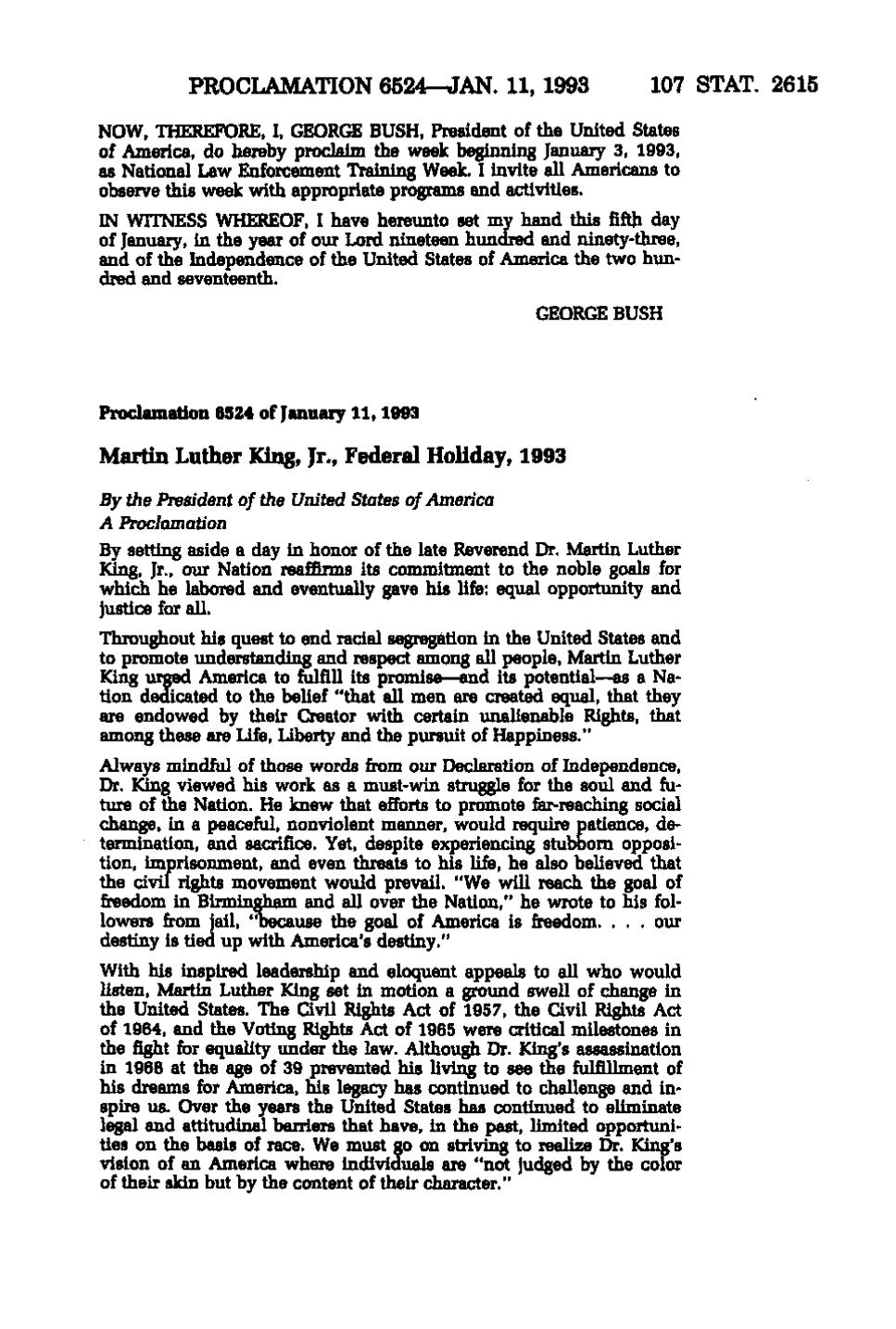PROCLAMATION 6524-nJAN. 11, 1993 107 STAT. 2615 NOW, THEREFORE, I, GEORGE BUSH, President of the United States of America, do hereby proclaim the week beguming January 3, 1993, as National Law Enforcement Training Week. I invite all Americans to observe this week with appropriate programs and activities. IN WITNESS WHEREOF, I have hereunto set my hand this fifth day of January, in the year of our Lord nineteen hundred and ninety-three, and of the Independence of the United States of America the two hundred and seventeenth. GEORGE BUSH Proclamation 6524 of January 11, 1993 Martin Luther King, Jr., Federal Holiday, 1993 By the President of the United States of America A Proclamation By setting aside a day in honor of the late Reverend Dr. Martin Luther King, Jr., our Nation reaffirms its commitment to the noble goals for which he labored and eventually gave his life: equal opportunity and justice for all. Throughout his quest to end racial segregation in the United States and to promote understanding and respect among all people, Martin Luther King urged America to fiilfili its promise—and its potential—as a Nation dedicated to the belief "that all men are created equal, that they are endowed by their Creator with certain unalienable Rights, that among these are Life, Liberty and the pursuit of Happiness." Always mindful of those words from our Declaration of Independence, Dr. King viewed his work as a must-win struggle for the soul and futiu« of the Nation. He knew that efforts to promote far-reaching social change, in a peaceful, nonviolent manner, would require patience, determination, and sacrifice. Yet, despite experiencing stubborn opposition, imprisonment, and even threats to his life, he also believed that the civil rights movement would prevail. "We will reach the goal of freedom in Birmingham and all over the Nation," he wrote to his followers from jail, "because the goal of America is freedom.... our destiny is tied up with America's destiny." With his inspired leadership and eloquent appeals to all who would listen, Martin Luther King set in motion a groimd swell of change in the United States. The Civil Rights Act of 1957, the Civil Rights Act of 1964, and the Voting Rights Act of 1965 were critical milestones in the fight for equality under the law. Although Dr. King's assassination in 1968 at the age of 39 prevented his living to see the fulfillment of his dreams for America, his legacy has continued to challenge and inspire us. Over the years the United States has continued to eliminate legal and attitudinal barriers that have, in the past, limited opportunities on the basis of race. We must go on striving to realize Dr. King's vision of an America where individuals are "not judged by the color of their skin but by the content of their character."
�
